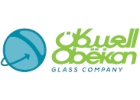Achievement proves low carbon hydrogen is a viable option to decarbonise of carbon-intensive glass manufacturing sector, according to partners behind trail-blazing scheme
Sheet glass has been produced using hydrogen fuel at a plant near Liverpool, in an achievement that has been touted by developers as a world first and a major milestone in industrial manufacturing's transition towards net zero emissions.
Progressive Energy, one of a raft of companies involved in the HyNet project to decarbonise industrial sites in the North West, announced this morning that hydrogen fuel had successfully replaced fossil gas in the manufacture of float glass at a facility owned by Pilkington UK in the town of St Helen's in Merseyside. The achievement is believed to be the first full-scale, 100 per cent hydrogen trial on a float glass line.
"This full-scale production trial over several weeks successfully demonstrated that it is possible to use hydrogen to safely and effectively fire a float glass plant," said Matt Buckley, managing director of Pilkington UK. "We now look forward to the HyNet concept becoming a reality."
Glass manufacturing is an energy- and emissions-intensive sector, with high temperature melting furnaces accounting for roughly 85 per cent of fossil fuels used at plants, according to statistics cited in a 2017 government report. Like cement, chemicals, and steel, the industrial sector relies heavily on fossil fuels and processes that are notoriously difficult and expensive to decarbonise. Switching furnaces from fossil gas to low carbon hydrogen fuel is regarded as one of the most promising ways to decarbonise the sector.
The trial at St Helen's is just one of several projects underway as part of HyNet's industrial fuel switching programme which aims to test whether low carbon hydrogen fuel could ultimately displace fossil fuels in industrial manufacturing processes, it said. A separate trial set to take place later this year with Unilever will test whether a commercial scale boiler at the consumer goods giant's Port Sunlight factory can similarly run on the low carbon fuel.
While the hydrogen provided for the demonstation project at St Helen's was provided by industrial gas giant BOC, the HyNet project wants local industry to ultimately transition from fossil fuels by purchasing 'blue' hydrogen produced at a plant planned at an oil and gas refinery owned by Essar near Stanlow that will make the fuel using fossil gas and carbon capture technology.
"Industry is vital for the economy, but is difficult to decarbonise," explained David Parkin, director of Progressive Energy and project director of HyNet North West. "HyNet is focused on removing carbon from industry through a range of technologies including the capturing and locking up of carbon and the production and use of hydrogen as a low carbon fuel."
The HyNet project is aiming to start removing emissions in the North West England and Wales from 2025 and it targeting the removal of 10 million tonnes annually by 2030. Its fuel switching programme was awarded £5.3m of funding from the department for Business, Energy, and Industrial Strategy (BEIS) through its Energy Innovation Programme in February 2020.
Steve Rotherham, metro mayor of the Liverpool City Region, said the HyNet project would bring jobs, investment, and innovation to the region, placing it at the vanguard of the UK's push to net zero. "Just as we led the first industrial revolution, our region is leading the green one too," he said. "HyNet has the potential to be a transformative project for our region, cutting carbon emissions across the North West by 25 per cent and helping us take big a step towards our climate targets."
The milestone comes amidst an increasingly intense debate over the competing merits of harnessing blue hydrogen or green hydrogen produced using renewable power and water to enable low carbon industrial processes. Critics of blue hydrogen argue production plants will struggle to capture all of the resulting carbon emissions and could drive a new wave of demand for fossil fuel gas. However, advocates of the technology argue it offers a viable low carbon alternative to green hydrogen and that as demand for hydrogen rises both forms of production will be required.
The world first for the glass industry comes just days after the HYBRIT plant in Sweden delivered the world's first shipment of green steel produced using hydrogen to auto giant Volvo, boosting hopes that energy intensive industries will be able to transition away from fossil fuels in the coming decades.

























